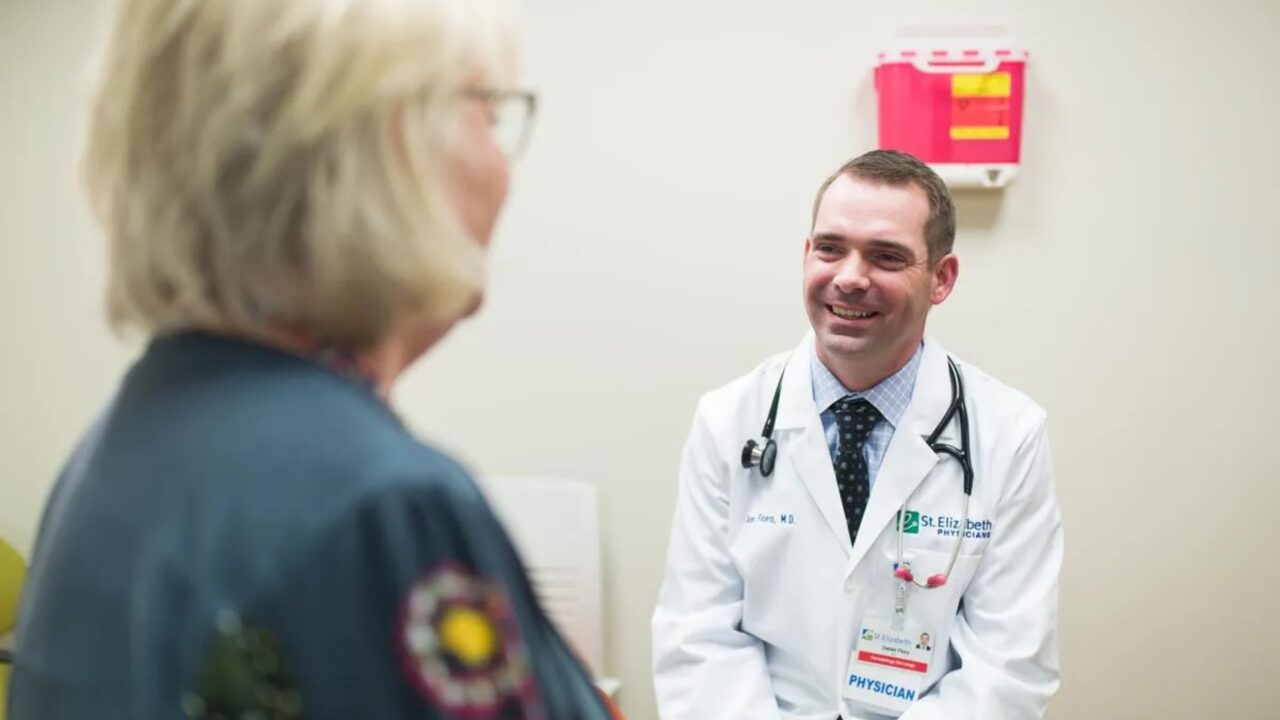Daniel Flora, Medical Director of Oncology Research at St. Elizabeth Healthcare, shared a post on Substack:
“In my clinic, I always try to create space for honest conversations. Some of the most important questions I hear begin with, “I read something online…”
Sometimes it’s a fair misunderstanding. A question about nutrition, immune health, or whether a certain supplement might help. Other times, it’s more serious, such as a belief in a theory that looks scientific on the surface but is built on misinterpretation, fear, or outright falsehood. And sometimes, it becomes something that changes the course of cancer care entirely. A decision made in good faith that leads a patient away from a treatment that could have cured them.
That is why I feel it’s important to speak up.
Cancer Makes People Vulnerable
A diagnosis takes everything you thought you knew about your health and turns it upside down. You are thrown into a world of complexity: CT scans, biopsies, quick decisions, and fear. It is so easy to feel out of control.
That’s when people start searching for answers. They go online. They find articles, videos, and stories. Some are thoughtful and accurate. But far too many are not.
A study published in the Journal of the National Cancer Institute reviewed 200 of the most popular cancer articles shared on social media. It found that 32.5 percent contained misinformation, and 30.5 percent contained potentially harmful information. Among the misinformation articles, nearly 77 percent were also considered harmful.
And here is the part that is really upsetting. The articles with misinformation and harmful content were shared more often than those that were accurate and safe. People were engaging more with the bad information than the good.
What Misinformation Looks Like
It rarely shows up looking obviously false. It often comes from someone who sounds confident and well-meaning. The message feels personal and persuasive. It uses scientific language and cites respected sources like the Mayo Clinic or Nature, but takes facts out of context to support a conclusion that is not based in real evidence. The person sharing the message may have no training in medicine or cancer care, but they speak with certainty. They may claim doctors are hiding the truth or that a cure is being suppressed.
They often have something to sell. And when people are overwhelmed or scared, it’s easy to see how this kind of message gains traction.
The Real-World Impact
This is not abstract. I have seen patients with curable cancers decide to delay or decline treatment after reading something online. I have seen people who had a strong chance of survival come back months later with advanced disease. Sometimes they return because the alternative approach is not working. Other times, they return when the damage is already done.
These are not people who lacked intelligence or intention. They were trying to make the best decision they could with the information they had. That is exactly why it matters so much. This is the hidden cost of cancer misinformation. It changes lives not just by spreading bad science, but by eroding trust in the people and treatments that could have made a difference.
Why I Keep Speaking Up
Sometimes a question is just a question. But other times, it reveals how deep the confusion runs. And when that confusion leads to mistrust, patients may step away from care that could save them. That is not just unfortunate. It is heartbreaking.
I do not speak up to shame anyone. I do it because I have seen what happens when belief in a false theory becomes stronger than belief in medicine. I have had to tell families that a window we once had is now closed. And I know that some of those outcomes were avoidable. I offer honesty about what I know and what I don’t. I will always answer questions, and I will never pretend to have every answer. But I will not stay quiet while misinformation causes real harm.
What Patients Deserve
They deserve doctors who listen and explain. They deserve real choices, presented with clarity and compassion. They deserve to ask hard questions and get thoughtful, evidence-based answers. Most of all, they deserve to trust the information they receive during one of the hardest chapters of their life.
If we want to protect that trust, we have to keep showing up. Not with judgment, but with humility, honesty, and a deep commitment to helping people find their way through something that is already more than enough to carry.
Before You Trust Cancer Information, Ask Yourself These Questions
1. Who is sharing this information?
Are they a doctor, scientist, or cancer expert?
Do they have credentials or experience in oncology or medical research?
2. What is their motivation?
Are they trying to educate, or are they trying to sell something?
If they are promoting a product, course, or supplement, be cautious. If their posts are hidden behind a paywall or require a purchase, be cautious.
3. Does this sound too good to be true?
Be skeptical of anyone promising quick fixes, guaranteed outcomes, or secret cures.
4. Are they quoting real science accurately?
Are they referencing respected journals or institutions?
Are the claims consistent with what your doctor has told you, or do they sound like the opposite?
5. Is fear part of the message?
Does the message create anxiety or mistrust in your medical team?
Be cautious if it accuses doctors or hospitals of hiding information or harming patients.
6. Have you talked to your oncologist about it?
Bring what you read to your doctor.
A good oncology team will walk through your questions and explain what’s real, what’s hopeful, and what’s potentially harmful.
Remember:
You don’t have to sort through all of this alone. Your cancer care team is there to support you and answer questions, even the tough ones. Ask, clarify, and trust your instincts. If something feels off, it’s okay to pause and check.”
More posts featuring Daniel Flora.


